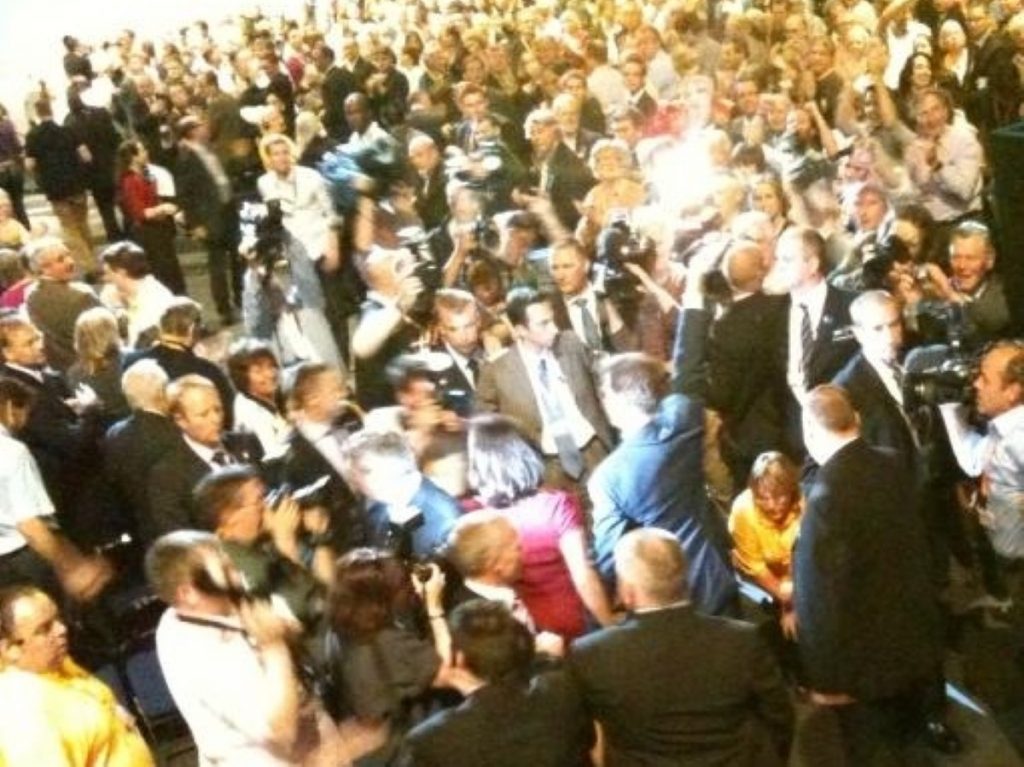Feature: That Lib Dem sinking feeling
“At least my family have got me back.” For many defeated Lib Dem councillors, it’s tough to find a silver lining.
Those of a liberal persuasion have wondered what it must be like to be a party of national government for decades.
Now, battered and bruised after a devastating series of elections, they know exactly how it feels. Terrible.


Whether victorious or, in the case of around a quarter of all Lib Dem councillors, vanquished, the gloomy post-mortems are now underway.
One of the most totemic council results took place early this morning in Sheffield, where Labour took control. The Lib Dems lost nine seats to Labour in a city which Clegg had once so proudly proclaimed as one governed by his party.
One Sheffield Lib Dem, who asked not to be named, was clear about what caused the reversal at the ballot box: “National issues ruled the day.”
This was a campaign which Labour successfully made about Clegg and the coalition in Westminster, not about local issues.
“Labour were able to present themselves as against cuts, presenting themselves as the anti-cuts party, whereas in actual fact we know they did plan cuts.
“But that didn’t really come across in their negative campaign. They didn’t talk one bit about local issues and they just hoped to gain off the back of that – and that’s what happened in the end.”
In places, the Lib Dem vote actually held up. Turnout was increased, but it appears far more Labour voters turned out than in previously local elections.
It’s possible a lot of students coming out to vote for the alternative vote turned on the party which wanted it most, backing either Labour or the Greens.
Or perhaps the fact that one in three people in Sheffield work in the public sector might have had something to do with it.
That negative reaction to the coalition’s spending cuts agenda was matched across the north-east and north-west, prompting predictable responses from voters in the ballot box.
Lib Dems struggled in the south, too. A close battle for the directly-elected mayoralty and his council in Bedford ended up with a three-way tie. Twelve seats for the Tories, Labour and Lib Dems each are less important than the mayoralty, though, which has yet to be called.
The leader of the Lib Dem group on Bedford council, Nick Charsley, lost his seat by the narrow margin of just 48 votes. “So far, I’m the only change,” he said on Friday afternoon. While philosophical about losing, it’s hard for him to hide his disappointment.
He isn’t so convinced that the national picture caused his downfall, for Bedford “does its own thing” in local elections.
But he can’t help but reveal some of his frustrations about some decisions made by Lib Dem ministers in the last 12 months, not least over the “fiasco” of tuition fees.
“My gut feel is I think the majority of people were happy that we went into the coalition, and then they’ve been frustrated because we haven’t been able to communicate properly to them how we are helping to shape that coalition,” he says.
It’s not about demanding that Clegg resign as leader, as a couple of others in his position have done. It’s about doing more to spell out to voters the differences the Lib Dems are making.
“I’m not going to say our MPs have made no mistakes. But on the whole I do believe our MPs are fighting and moulding policy to make it [the coalition] better, and that’s what is not coming across.”
One of the very few places in the country where the Lib Dems actually managed to improve their number of councillors was Poole, which saw the Conservatives lose control.
This had more to do with the emergences of a right-wing pressure group, Poole People, than the Lib Dems gaining seats. But the latter made one gain and held the seats they were defending, making this a relative bright spot.
How did they do it?
“You had to be really proactive on the doorstep,” answers councillor Phillip Eades, “and say ‘sir, madam, this is not the time. This is all about Poole, people round here and who represents you for the next four years. Not voting for me is not the way to protest!'”
It was clear on the doorstep that many people wanted to make a protest based on the national picture, he said.
The only option available to local Lib Dems was to make the decision about whether to protest or not solely about the councillor in question.
“We never mentioned national politics,” Cllr Eades adds. “Nick Clegg was nowhere near anybody’s leaflet.”
Labour and the Conservative activists have been dealing with being an unpopular party of government for years. Lib Dems have 12 months to learn the lessons of their 2011 kicking.
The question now becomes about whether the party will be able to convince its leaders in Westminster and Whitehall about the need to change the message.
“I think after the general election we’re between a rock and a hard place,” our Lib Dem from Sheffield says.
“I think we’re trying to make the best of a bad situation politically. I think we should go about it in a more businesslike manner than present ourselves as bedfellows.”
This change is already beginning to happen – in the television studios, in the newspapers, even in the Cabinet room.
But for over 700 councillors, it’s come too late.












